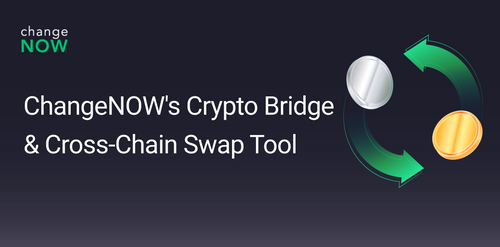Understanding De-Dollarization and Its Implications for Crypto
What is De-Dollarization?
De-dollarization refers to the process by which countries aim to reduce their reliance on the U.S. dollar in international transactions and reserve holdings. With concerns over the potential risks associated with a single dominant currency, countries have been diversifying their portfolios by exploring alternatives to the dollar.

The Bretton Woods Agreement and the U.S. Dollar’s Dominance
The Bretton Woods Agreement was established in 1944 to create a stable global economic system after World War II. The agreement pegged other currencies to the U.S. Dollar, which was, in turn, pegged to gold. This made the U.S. Dollar the primary currency for international trade and a safe haven for countries to hold in their foreign exchange reserves.
However, the U.S. abandoned the gold standard in 1971, which led to the dollar becoming a fiat currency. This meant that the Federal Reserve had the responsibility of maintaining the dollar's value, but as history has shown, the central bank's policies have led to the continuous devaluation of the currency.
The Shift Towards De-Dollarization
As countries around the world become more economically independent, the need for a single global reserve currency has diminished. In recent years, there has been a gradual shift away from the U.S. Dollar, with nations like China, Russia, and the European Union looking for alternatives.
This shift has been driven by several factors, including:
- Geopolitical Tensions: The U.S. has used its currency dominance as a tool for imposing economic sanctions on other countries, which has led to a push for de-dollarization among nations looking to protect their economies from such actions.
- Economic Growth: Emerging economies like China and India have experienced significant growth in recent years, leading to an increased desire for a more diversified reserve currency system.
- Diversification: Countries are looking to diversify their foreign exchange reserves to reduce their reliance on the U.S. Dollar and protect themselves from potential economic shocks.
The Role of Cryptocurrencies in De-Dollarization
As nations search for alternatives to the U.S. Dollar, cryptocurrencies like Bitcoin have emerged as potential contenders. With their decentralized nature and freedom from government control, cryptocurrencies offer a viable alternative to traditional fiat currencies.
Bitcoin as a Reserve Asset
Bitcoin, in particular, has been touted as a potential reserve asset due to its scarcity, digital nature, and global acceptance. As a digital commodity, Bitcoin could serve as a marginal addition to central bank reserves and even rival traditional assets like gold. While it may not replace the U.S. Dollar as the global reserve currency, it could play a significant role in a more diversified reserve currency system.
Crypto Adoption and Regulation
The adoption of cryptocurrencies by nation-states, however, is not without challenges. Regulatory hurdles and concerns over volatility have slowed the process of cryptocurrencies becoming mainstream reserve assets. Additionally, the U.S. has been cracking down on the crypto industry, further complicating the path toward global acceptance.
That said, countries like China have begun to change their stance on cryptocurrencies, allowing for the possibility of a more welcoming regulatory environment in the future.
The Impact of De-Dollarization on the Crypto Market
As the world moves towards de-dollarization, the crypto market stands to benefit in several ways:
- Increased Demand: As countries diversify their reserves, they may allocate a portion of their funds to cryptocurrencies, leading to increased demand and potentially higher prices for digital assets.
- Reduced Volatility: As cryptocurrencies become more widely accepted as reserve assets, their volatility may decrease, making them more attractive to investors and nation-states alike.
- Mainstream Acceptance: The adoption of cryptocurrencies by central banks could lead to greater mainstream acceptance and increased use of digital assets in everyday transactions.
ChangeNOW: Your Gateway to the World of Crypto
Ready to explore the possibilities of the crypto world amidst the de-dollarization trend? Visit ChangeNOW to exchange or buy crypto NOW. With its secure and efficient platform, ChangeNOW enables you to diversify your holdings, seize investment opportunities, and embrace the future of decentralized finance.
Don't miss out on the potential of cryptocurrencies in the era of de-dollarization. Visit ChangeNOW to exchange or buy crypto and embark on a transformative financial journey.
Disclaimer: This article does not constitute financial advice. Cryptocurrency investments involve risks, and it is essential to DYOR and exercises caution when engaging in crypto transactions.



